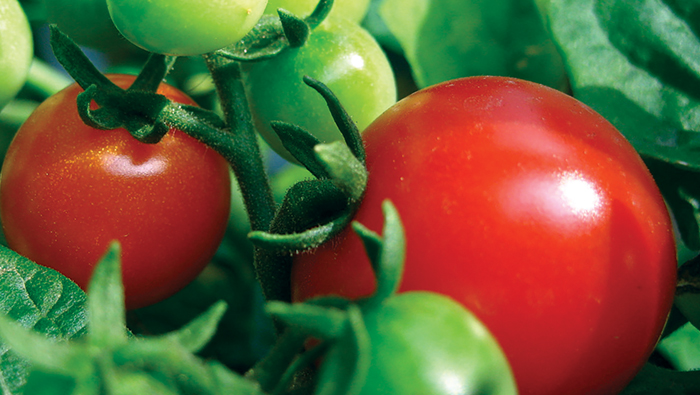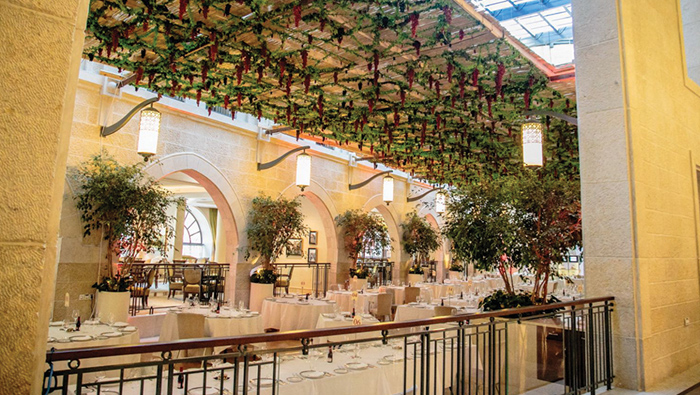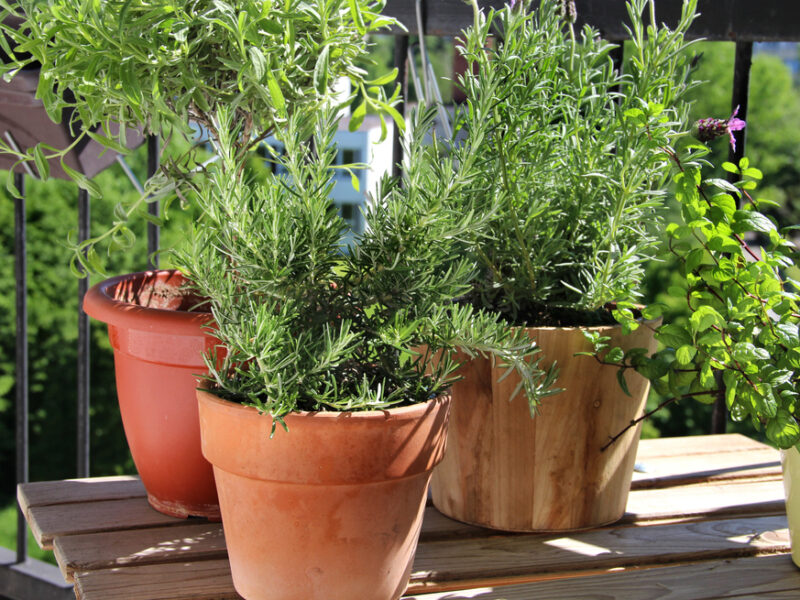Neal Brooks, the owner of Abby Lee Farms, wants to bring something back to the produce department of your neighborhood grocery store – taste. Mostly in the form of tomatoes that have such astonishing flavor, you won’t want to settle for anything less, ever.
To appreciate these tomatoes for even more than just their taste, you have to go back to where Neal Brooks, the farmer, began.
Neal was a businessman at 12, selling tapes at the swap meet with his brother. When a family friend told them that a plant store was going out of business and liquidating its inventory, Neal’s mother drove him there so that he could purchase all the remaining plants for $200. He turned his investment into a couple of thousand dollars and thought, “Hey, plants are a good angle.” At 14, he used his bar mitzvah money to start producing his own inventory, with greenhouses located in his family’s north Phoenix backyard.
For the next 35 years, he grew ornamental plants and supplied them to Costco, Home Depot, Walmart, Kmart and more stores from 35 acres in Phoenix and an operation in Chino Valley near Prescott. He sold the business in 2000, but still retained the facility. Then in 2007, the ornamental market plummeted as people started to plant only plants that “had a purpose” – like vegetables or fruit trees.
About three years ago, Neal started working with a tenant in his Phoenix facility who was a hydroponic gardener. Today the Phoenix facility is 150,000 square feet and a second hydroponic facility in Willcox occupies another 100,000 square feet. The two locations allow the farm to produce year round. “We grow here [in Phoenix] during the nice, warm winter and then in the heat of the summer we go to Willcox, which is 30 degrees cooler. We do that because we don’t want to leave our clients for months,” Neal explains. “Growing in a controlled environment, heating and cooling and manipulating the light where the baby plants are grown. If we want to get a plant ready early, we can pretty much manipulate everything. That’s the whole idea. To have consistent taste, consistent quality 12 months of the year.”
“Hydroponics was really perfected by the Dutch; we are growing in a bag of cocoa waste that is 4 inches by 6 inches wide and a meter long. We water 35 times a day this time of year. We can get as good a taste in hydroponics as you can with those grown in the ground. It is the most sustainable and consistent way to grow produce,” says Neal. But this production does not come cheap. The average cost of water and fertilizer alone is $1,000 a day. “Farming today takes tremendous capital, tremendous patience and you have tremendous risk,” says Neal.
Hydroponics uses 10% of the water a field would use and takes up less space; you can grow in three acres hydroponically what would take 40 acres if grown in the ground. Everything is grown on a wire, vertically, up to 10 feet. The plants start in one position, but by the time the fruit is mature it may be 40 feet away from where the plant started, like a big merry-go-round. The workers harvest on stilts to be able to reach the top of the plants.
In this high intensity growing environment, things move fast. The entire crop can be wiped out in two days if a problem arises. Insects can potentially be an issue, but have limited access to plants grown inside a greenhouse. Still, Neal has a solution for pests, “We use predators, so we can kill bugs naturally. You want to use the predators to achieve a balance – feed the good bugs so that they eat the bad bugs. We also bring in bumble bees to do the pollination. I don’t like to spray because it hurts the bees.” He calls his tomatoes “not organic, but pesticide free” and also explains that they do not wash their produce after harvesting. “We pick and ship. We don’t wash the produce and we don’t refrigerate it. The shipment touches the truck and the distributor, and that’s it. Washing actually exposes the produce to more bacteria like E. coli. The idea is to wash it when you get home.”
The minimal handling and quick delivery also make for a tastier tomato. “When you get tomatoes in the store, they are usually 20 days out from when they are picked to when you eat them. Check the label. They are required to put the pick date on it; you know that if the tomato wasn’t picked ripe, it’s not going to have any taste,” explains Neal. Much of the produce we eat in Arizona comes from Mexico or Florida and has been traveling for weeks to get to our store’s produce section.
But no matter how well you handle the tomato, it helps to start out with good genetics. “The Israelis are some of the best tomato breeders in the world. They have phenomenal quality and consistency. They ship all over the world. We have used their genetics a lot. You can trace back most seeds to Israel.” Tomato sweetness is measured in Brix units. The average tomato at a grocery store would measure 5-6 Brix units. Neal’s are 10-12. There is a new variety from Israel that measures 16 Brix units. Neal says, “It tastes like a berry because it is so sweet.”
Because of their incredible flavor, Abby Lee Farms tomatoes (and their other produce, too) are a favorite among local chefs. Pizzeria Bianco, Pane Bianco, The Henry, True Food Kitchen, FnB, The Parlor, Crudo, Postino are just some of the restaurants that put their produce on the menu. Neal also lets chefs shop in the greenhouse. “We have shopping carts and the chefs go around and pick exactly what they want. We love restaurants that come down [to the farm] direct, or go to the farmer’s markets,” says Neal. They sell their produce at 10 farmer’s market locations in the Valley every week and in the summer, they head to the markets in Payson, Prescott and Flagstaff. Neal explains that produce for the farmer’s markets is “picked by 4 am to be at the market by 8 am.”
“The best thing in the world is to have your own garden. The problem is, it’s work. We do the work for you.” But Neal knows that trying to put a new brand out there is hard. Big grocery chains are hesitant to take a risk on a new supplier. Only 1-2% will actually stock local produce even though they may claim their produce is local.
“We know that people want fresh, local, tasty produce; they just need to convey that to the stores,” says Neal. He also knows the power of the consumer. “The whole idea is a throwback to what we used to do 50 years ago, growing in your backyard – nobody had to pick, pack or ship it – [you just] pick it and eat it. We are trying to bring freshness and taste back to the grocery store, and it’s a matter of people asking for it.”






